Eastern Region
There are 11 local authorities in the Eastern region
They are Bedford Borough, Cambridgeshire, Central Bedfordshire, Essex, Hertfordshire, Luton, Norfolk, Peterborough, Southend-on-Sea, Suffolk and Thurrock.
The Eastern Region chair is Sara Tough, Executive Director of Children's Services, Norfolk County Council
Regional representative on ADCS Council of Reference
Sarah-Jane Smedmor, Director of Children's Services, Suffolk County Council

Chair
Sara Tough
Eastern Midlands Region
There are 10 local authorities in the East Midlands region
They are Derby, Derbyshire, Lincolnshire, Leicester, Leicestershire, North Northamptonshire, Nottingham City, Nottinghamshire , Rutland and West Northamptonshire
The East Midlands region chair is Colin Foster, Chief Executive, Northamptonshire Children’s Trust
Regional representative on ADCS Council of Reference
Colin Pettigrew, Corporate Director of Children, Young People and Schools Nottinghamshire County Council

Chair
Colin Foster
Greater London Region
There are 33 local authorities in the Greater London region
They are Barking and Dagenham, Barnet, Bexley, Brent, Bromley, Camden, City of London, Croydon, Ealing, Enfield, Greenwich, Hackney, Hammersmith and Fulham, Haringey, Harrow, Havering, Hillingdon, Hounslow, Islington, Kensington and Chelsea, Kingston upon Thames, Lambeth, Lewisham, Merton, Newham, Redbridge, Richmond upon Thames, Southwark, Sutton, Tower Hamlets, Waltham Forest, Wandsworth and Westminster
The Greater London region chair is Florence Kroll, Director of Children's Services, Royal Borough of Greenwich
Regional representatives on ADCS Council of Reference
Ana Popovici, Executive Director of Children's Services, Wandsworth Council
Nigel Chapman, Corporate Director, Children and Young People, Brent Council
The London Innovation and Improvement Alliance’s (LIIA) dedicated website can be found here. The LIIA the ALDCS sector-led improvement partnership, hosted by London Councils.

Chair
Florence Kroll
North East Region
There are 12 local authorities in the North East region
They are Darlington, Durham, Gateshead, Hartlepool, Middlesbrough, Newcastle-upon-Tyne, Northumberland, North Tyneside, Redcar and Cleveland, South Tyneside, Stockton and Sunderland.
The North East region chair is Helen Fergusson, Strategic Director, Social Care and Lifelong Learning, Gateshead Council
Regional representatives on ADCS Council of Reference
Helen Fergusson, Strategic Director, Social Care and Lifelong Learning, Gateshead Council
Majella McCarthy, Director of Children's Services, Stockton Council
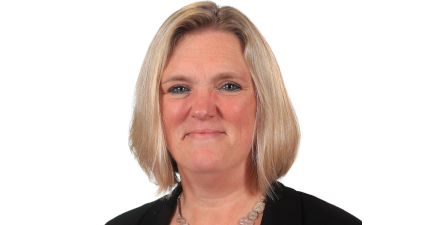
Chair
Helen Fergusson
North West Region
There are 24 local authorities in the North West region
They are Blackburn with Darwen, Blackpool, Bolton, Bury, Cheshire East, Cheshire West and Chester, Cumberland, Halton, Knowsley, Lancashire, Liverpool, Manchester, Oldham, Rochdale, Salford, Sefton, St Helens, Stockport, Tameside, Trafford, Warrington, Westmorland and Furness, Wigan and Wirral.
The North West regional Chair is Colette Dutton, Direcor of Children’s Services, Wigan Council
Regional representatives on ADCS Council of Reference
Chris McLoughlin, Executive Director for People and Integration, Stockport MBC
Colette Dutton, Direcor of Children’s Services, Wigan Council
Vicky Gent, Director of Children's Services, Blackpool Council
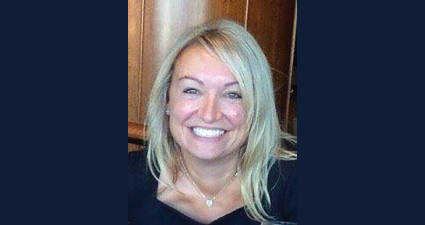
Chair
Colette Dutton
Wigan Council
South East Region
There are 19 local authorities in the South East region
They are Brighton and Hove, Bracknell Forest, Buckinghamshire, East Sussex, Hampshire, Isle of Wight, Kent, Medway, Milton Keynes, Oxfordshire, Portsmouth, Reading, Slough, Southampton, Surrey, West Berkshire, West Sussex, Windsor and Maidenhead and Wokingham.
Co-Chairs
The South East region is co-chaired by Mac Heath, Director of Children’s Services in Milton Keynes Council and Carolyn Fair, Director of Children's Services, East Sussex County Council
Regional representative on ADCS Council of Reference
Mac Heath and Carolyn Fair
More details of the regional activities can be found at www.seslip.co.uk

Co-chair
Mac Heath
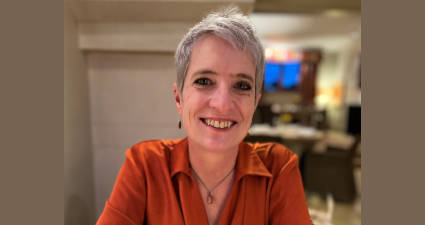
Co-chair
Carolyn Fair
South West Region
There are 15 local authorities in the South East region
They are Bath and North East Somerset, Bournemouth, Christchurch and Poole, Bristol, Cornwall, Devon, Dorset, Gloucestershire, Isles of Scilly, North Somerset, Plymouth, Somerset, South Gloucestershire, Swindon, Torbay and Wiltshire.
The Chair of the South West region is Ann James, Director of Children's Services, Gloucestershire County Council
Regional representative on ADCS Council of Reference
Ann James, Director of Children's Services, Gloucestershire County Council
Claire Winter, Director of Children's Services, Somerset Council
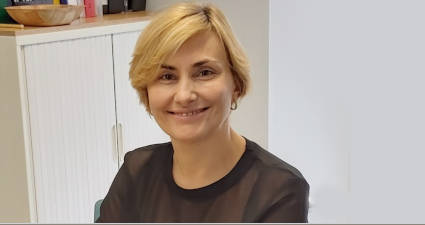
Chair
Ann James
West Midlands Region
There are 14 local authorities in the West Midlands region
They are Birmingham, Birmingham Children's Trust, Coventry, Dudley, Herefordshire, Sandwell, Shropshire, Solihull, Staffordshire, Stoke-on-Trent, Telford and Wrekin, Walsall, Warwickshire, Wolverhampton and Worcestershire.
The West Midlands region chair is Jo Britton, Executive Director: Children’s Services and Public Health, Telford & Wrekin Council.
Regional representative on ADCS Council of Reference
Vice Chairs: Alison Hinds, Director of Children's Services, City of Wolverhampton Council and Nigel Minns, Executive Director for Children and Young People, Warwickshire
This West Midlands regional programme is supported by the West Midlands ADCS Network team; more information can be found via the regional chair, by contacting info@wmchildrensservices.org.uk or via the website www.wmchildrensservices.org.uk

Chair
Jo Britton
Yorkshire and Humber Region
There are 15 local authorities in the Yorkshire and Humber region
They are Barnsley, Bradford, Calderdale, Doncaster, East Riding of Yorkshire, Hull, Kirklees, Leeds, North East Lincolnshire, North Lincolnshire, North Yorkshire, Rotherham, Sheffield, Wakefield and York.
The Yorkshire and Humber region chair is Riana Nelson, Executive Director of Children , Young People and Families, City of Doncaster Council
Regional representative on ADCS Council of Reference
Pauline Turner, Director, Children, Young People and Family Services, Hull City Council
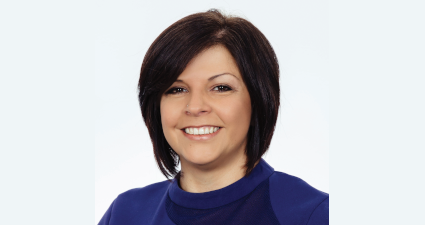
Chair
Riana Nelson
Regional Improvement & Innovation Alliances (RIIAs)
There has long been a strong commitment amongst local authority children’s services to working collaboratively to improve children and young people’s outcomes via data benchmarking, peer challenge activity and informal mentoring or support. This work has largely taken place on regional footprint e.g. the north west or south east, with structures and practical activities varying from place to place.
In 2017 the Association of Directors of Children’s Services (ADCS) began working with the Local Government Association (LGA), the Society of Local Authority Chief Executives (Solace) and the Department for Education (DfE) on plans to bring more coherence to these sector-led improvement arrangements. Regional Improvement and Innovation Alliances (RIIAs), which went live on 1 April 2019, are the result of these efforts.
RIIAs draw together local authority chief executives, lead members for children’s services, directors of children’s services, and other senior leaders of children’s services, in both local authorities and trusts, in a bid to challenge and support each other collectively to be ambitious for all children, young people and families. These arrangements are built on the understanding that there is considerable expertise, knowledge and skills across the whole sector; that everyone has something to give and to learn.
RIIAs are a trusted, effective and coherent sector-led model underpinned by robust peer-review and challenge processes supported by inter-authority improvement offers and national offers including from the DfE’s nominated sector-led improvement partners and the LGA’s extensive sector-led improvement offer to councils. Additionally, an agreed core dataset is collected across all regions on a quarterly basis. This was refreshed in 2022.
Each RIIA has a nominated lead director of children’s services, a lead member for children’s services and a lead chief executive as well as a DfE link advisor and a regional LGA advisor. All authorities in the region also sign up to a Memorandum of Understanding, clearly setting out how data will be shared, support will be given and received as well as the ways in which concerns about local policy, practice or processes will be addressed, and if necessary, escalated.
RIIAs are concerned with the full spectrum of children’s services, from safeguarding, early years and youth work to SEND and family support. Members of each RIIA work together to identify shared priorities which in turn inform regional development plans for the coming year. There is a very clear sense of, and a commitment to, this common endeavour.
The focus of the central ADCS team is on facilitating the sharing of learning and best practice intra and inter-regionally, as well as advocating for children to be given a higher profile in national policy making via engagements with national government and agencies and the development of national policy position statements and papers.

